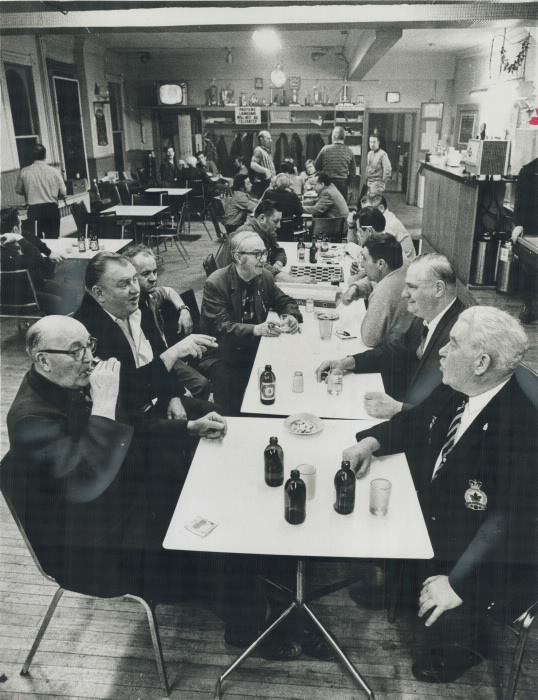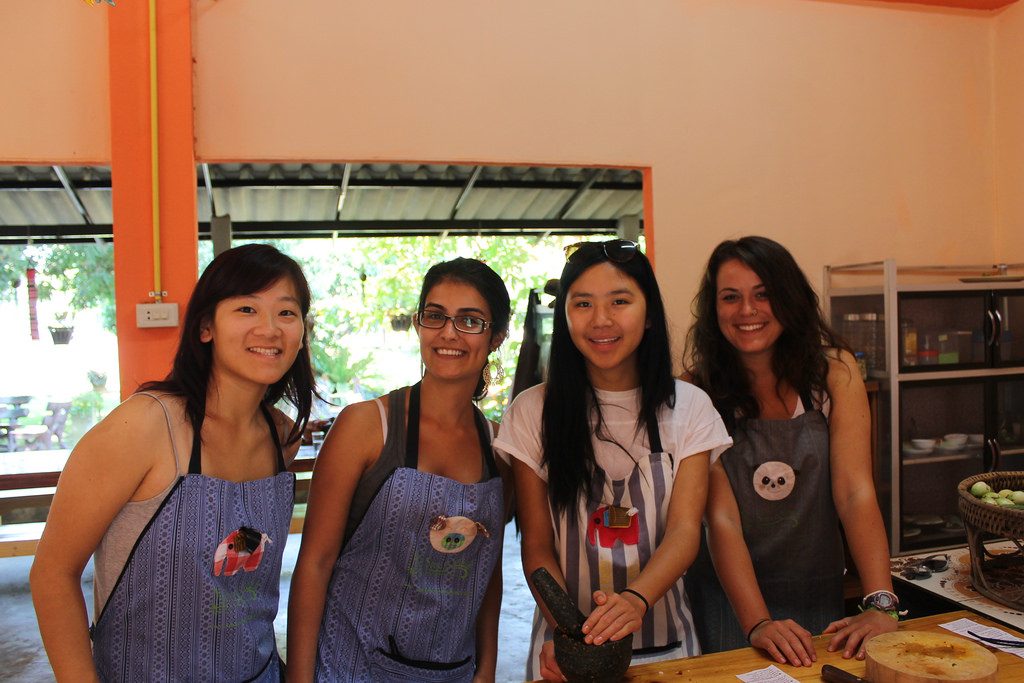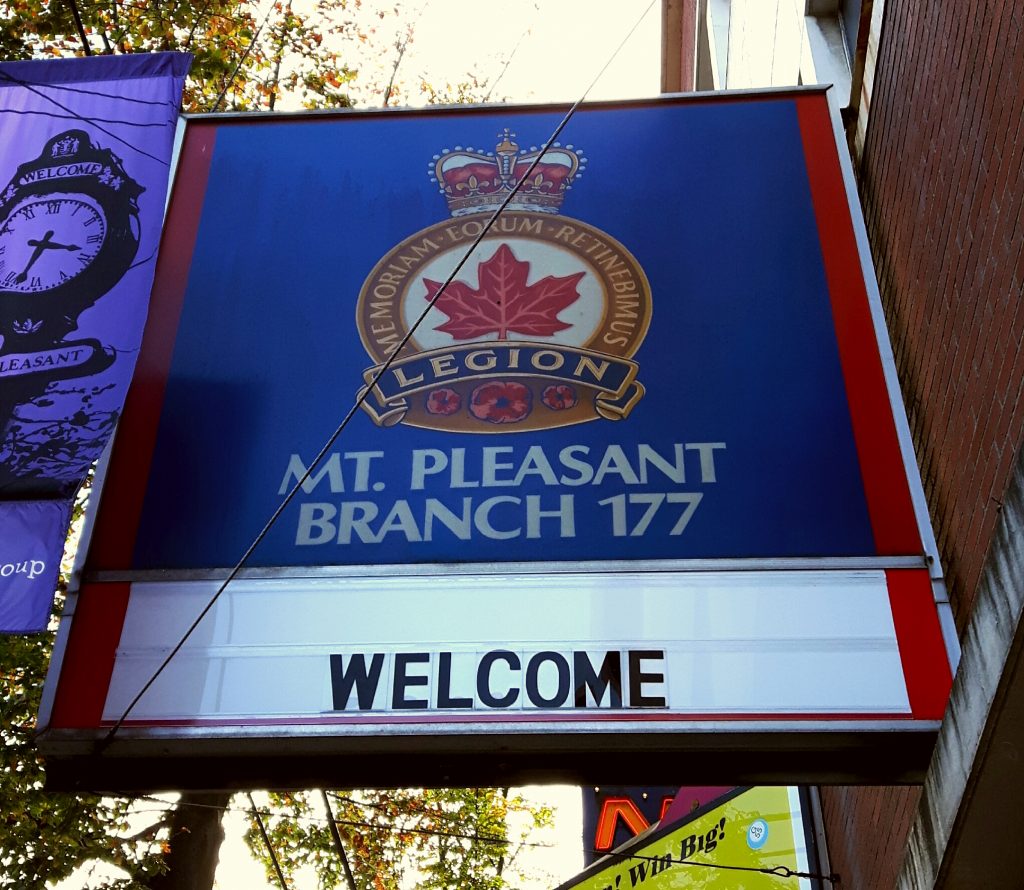
Weekly Objectives and Achievements
Our objective was to visit the Legion during our flexible learning time and find out more about the facility, obtain contact details for the branch president, and understand their services. Our first attempt was on a Friday evening, under the assumption that the Legion would be open as a social space. We realized that there were specific office hours during the day time and were unable to enter the Legion and access the space. As a result, we planned a second visit to the Legion during their said office hours. We arrived during their office hours and discovered that the hours are flexible. The elevator was locked so we couldn’t access the basement level, where the Legion is located. While we attempted to figure out how to enter the Legion, we met an employee who works in the building (which is shared between three other organizations) who gave us information about the Legion. Since out last blog post, we also put together our project proposal, which can be found here: http://tinyurl.com/mtpleasantlegion177proposal.
Our Moment of Significance
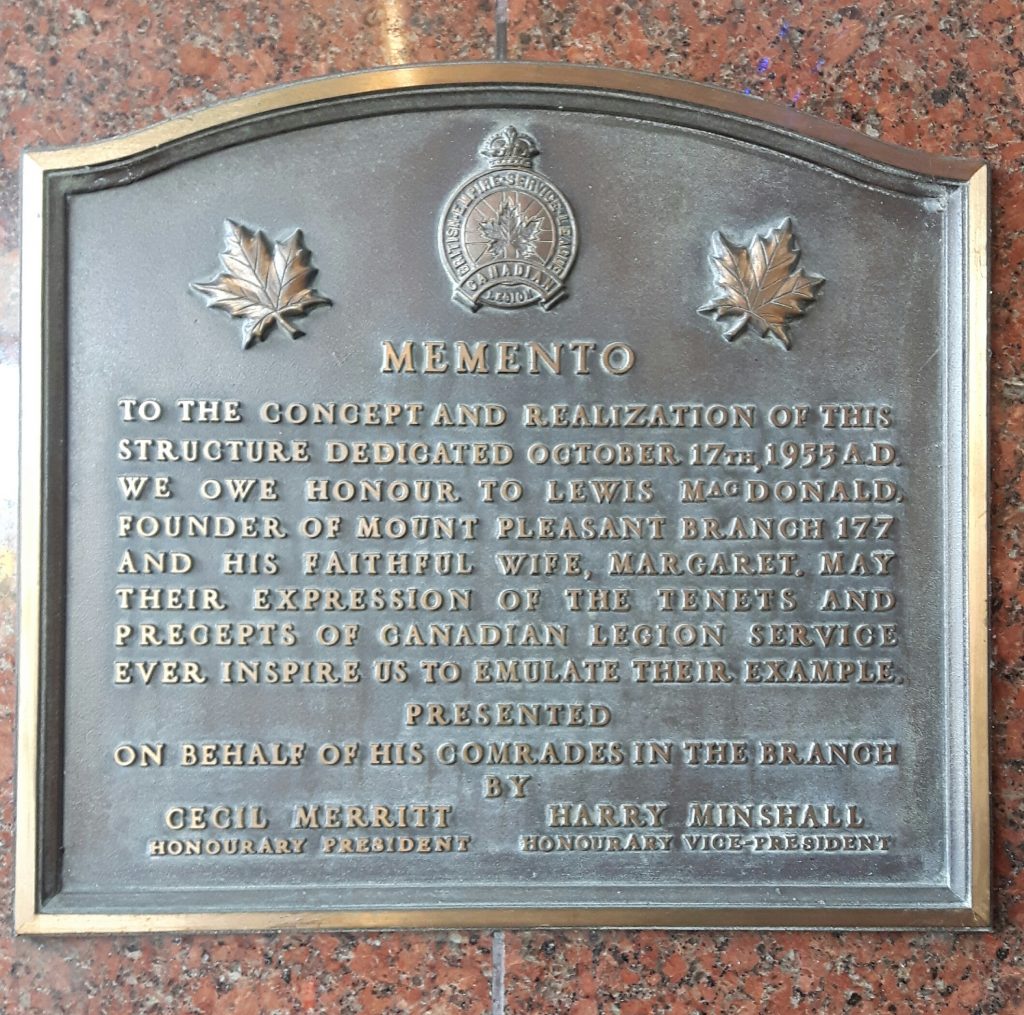
What
We were trying to obtain information regarding the Legion’s facilities and wanted to meet a possible contact person. An employee named Shaun shared his insight with us, including how the Legion uses their space, and the facilities and resources the Legion has. He also advised us to talk to Isabel, the Legion’s president, in the early morning when she is most likely to be in the office, as the posted hours are very loosely observed.
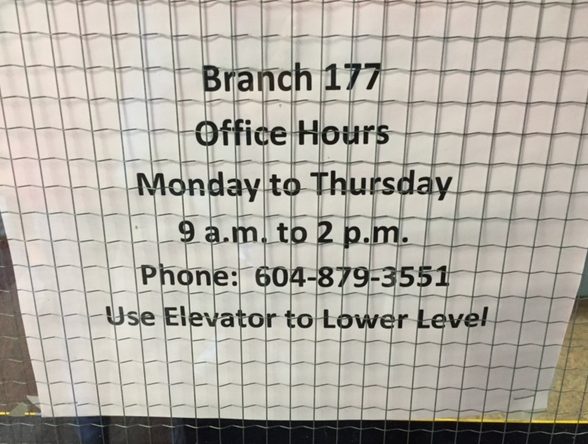
So What
Even though we were unable to access the physical Legion space and meet Isabel, Shaun provided us with valuable insight. We learned that the Legion has a full kitchen and banquet space, is one of two dry Legions in Canada, and has three bowling lanes. He also provided information about the Legion’s programming, which includes senior-focused banquets and their annual poppy fund campaign. When asked about access to an event schedule, he said it isn’t publicized and relies heavily on word of mouth.
This speculation made us question, how many people people are aware of Mount Pleasant Legion as a food resource? In Ron Finley’s Ted Talk, he expressed the need for bringing food into the proximity of those who need it. Unfortunately, we were unsuccessful in finding any information regarding this Legion after researching on the Internet. It wasn’t until we visited the Mount Pleasant Legion building, that we were able to gain substantial information. In the case of this particular Legion, the food is available and accessible, however most people are unaware of its existence. This issue may explain the motivation behind the City of Vancouver’s initiative to publicize local food assets, and will hopefully broaden the resource options available to individuals living within these communities.
This experience did not reflect our expectations and we could have come away from it feeling frustrated, however as Tim Harford explains in his Ted Talk, problems that arise can present themselves as opportunities (2016). Our situation reminded us that community-based research is often unpredictable, but that we can still gain information from non-ideal situations if we can adapt to the problems.
Now What
With this newfound information, we plan to visit a third time in the morning in hopes of meeting Isabel in person. We would like to establish initial contact in preparation for an interview in two weeks’ time as well as find out if and when the next event will be. If possible, interviewing Isabel and speaking with volunteers and members will give us a clearer picture of how the Legion operates within the community.
Although our inability to contact our Legion up until this point could be seen as a failure, we had anticipated that establishing a relationship with Legion staff could take time. As heard in the Freakonomics podcast, “Failure is Your Friend”, there is a negative stigma associated with failure, but accepting failure and working through it can lead to a more productive group output and more positive results during project work. We have noticed that it is only through failure that we have grown stronger as a team. As we continue to reach out to the Mt. Pleasant Legion, we will work on being flexible with our communication efforts and being patient regardless of our slow start to this project.
Upcoming Objectives and Strategies
In the next two weeks, we will:
- Make a point of contact with Isabel, the President of Legion Branch 177
- Learn about upcoming events and if there is potential for us to participate
- Observe the Legion’s kitchen and dining facilities
- Prepare for interview sessions
- Refine interview questions from interview guide in proposal
- Prepare consent forms
- Schedule interview times
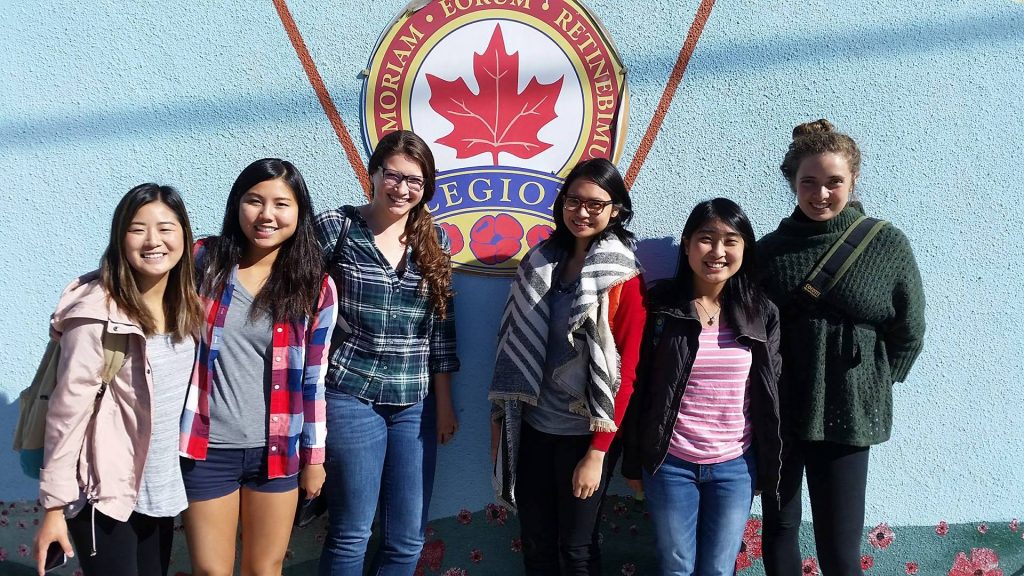
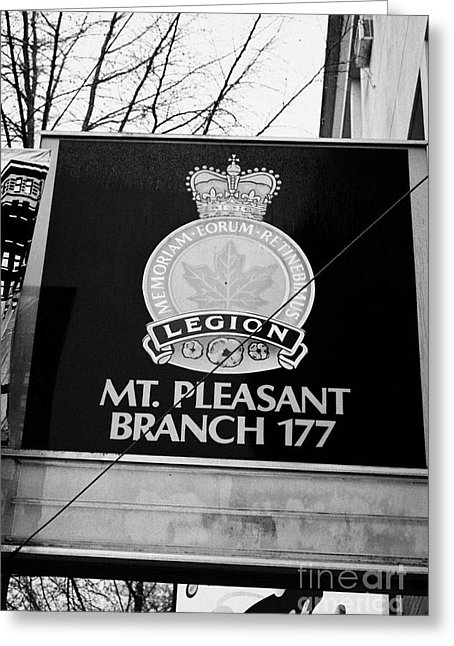 Photo credit:
Photo credit: 